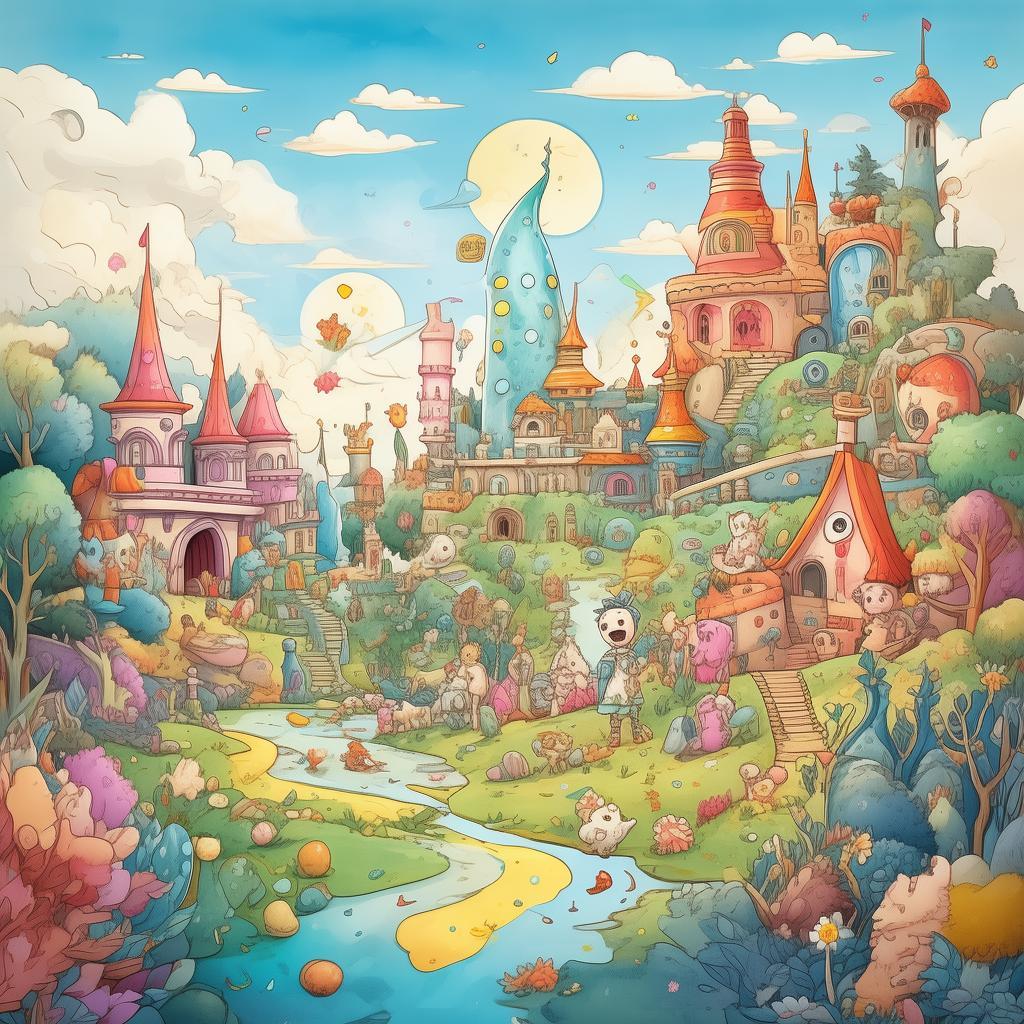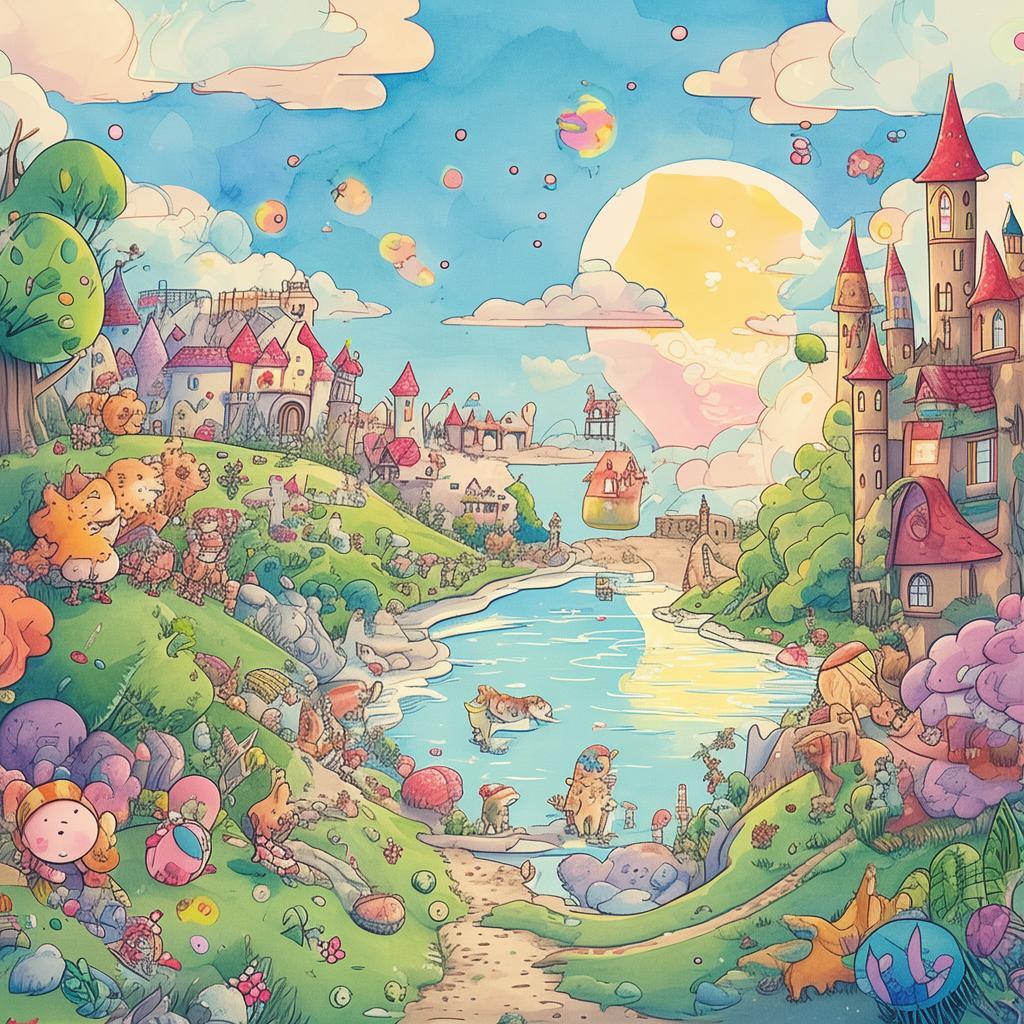Whispers of Silk and Strings: The Orphan's Opera
In the heart of a bustling city, where the cobblestone streets whispered tales of old, lived a young orphan named Lila. Her only companions were the stars that twinkled in the night sky and the whispering winds that danced through the alleyways. Lila was known for her quiet demeanor and her skillful hands, which could weave the finest silk into garments that seemed to breathe with life. Yet, there was a mystery that clung to her like the fog that rolled in on cold mornings.
It all began one crisp autumn evening when Lila stumbled upon a tattered, leather-bound journal hidden under a loose floorboard in the attic of the orphanage. The journal belonged to her mother, it seemed, filled with sketches of elegant gowns and notes about an opera house that she had once called home. The entries were cryptic, hinting at a secret that Lila's mother had never shared.
Determined to uncover the truth, Lila began to search for the opera house. She followed the directions in the journal, her heart pounding with anticipation. The city was vast, but the journal's clues were like breadcrumbs leading her to the grand, old opera house at the edge of town.
As she approached the grand marble steps, Lila felt a strange sense of familiarity. She pushed open the heavy doors and was enveloped in the rich scent of old wood and the distant sound of music. The opera house was a labyrinth of dimly lit corridors and grand auditoriums, each one more mysterious than the last.
It was in one of the smaller rooms, where the walls were adorned with portraits of the opera's most celebrated performers, that Lila found a hidden door. Behind it was a small, dusty room with a single piano. She sat down, her fingers tracing the keys, and to her astonishment, the piano began to play itself, its melody hauntingly familiar.

Lila knew then that she was meant to be part of this opera house. She began to practice every day, her voice growing stronger and more powerful. She learned the art of opera, not just from the journals of her mother, but from the performances she witnessed. The opera house became her sanctuary, a place where she could lose herself in the music and the stories of the past.
One evening, as Lila was performing a duet with a young tenor, the music director, a stern but fair man named Mr. Harmon, approached her. "Lila," he said, "I have been observing you. You have a gift, one that I have not seen in many years."
Lila's eyes widened with surprise. "What do you mean, Mr. Harmon?"
"I mean," he continued, "that you have the voice of an angel, and you have the heart of an opera. You belong here, Lila. You are part of our family."
Lila's heart swelled with joy and a sense of belonging she had never known. She realized that the opera house was not just a place of performance but a place of healing and discovery. It was here that she could find her voice, both literally and metaphorically.
One night, as Lila was preparing for a performance, she found a hidden compartment behind the stage curtain. Inside was a locket with a portrait of her mother and a note that read, "Lila, the opera is your birthright. You were meant to sing, to weave the threads of your past into the tapestry of the future."
Tears filled Lila's eyes as she read the note. She knew then that her mother had known all along, that the opera house was her destiny. With a newfound sense of purpose, Lila stepped onto the stage, ready to share her story and the music that had been waiting for her all these years.
The performance was a triumph, the audience captivated by Lila's voice and the story of her journey. The opera house, once a place of mystery, had become a sanctuary of hope and dreams. And Lila, the orphan with the silk hands and the golden voice, had found her place in the world.
As the curtain fell, Lila whispered to the audience, "Thank you for welcoming me into your home. This is just the beginning of my story."
The applause was thunderous, and Lila knew that her life had changed forever. She had found her voice, and she would use it to weave the threads of her past into the future, creating a melody that would resonate through the ages.
✨ Original Statement ✨
All articles published on this website (including but not limited to text, images, videos, and other content) are original or authorized for reposting and are protected by relevant laws. Without the explicit written permission of this website, no individual or organization may copy, modify, repost, or use the content for commercial purposes.
If you need to quote or cooperate, please contact this site for authorization. We reserve the right to pursue legal responsibility for any unauthorized use.
Hereby declared.









